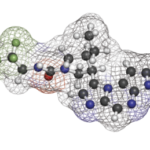NEW YORK (Reuters Health)—Monotherapy with the JAK1-selective inhibitor upadacitinib is effective in patients with active rheumatoid arthritis who have an inadequate response to methotrexate, according to results from the SELECT-MONOTHERAPY phase 3 trial.
As many as two-thirds of patients with rheumatoid arthritis receiving methotrexate monotherapy fail to achieve satisfactory disease control. Oral therapy with upadacitinib has demonstrated efficacy with rapid onset of action in patients with inadequate responses to disease-modifying antirheumatic drugs (DMARDs) when added to existing DMARD treatment.
Dr. Josef S. Smolen from Medical University of Vienna, Austria and colleagues at 138 sites in 24 countries compared upadacitinib monotherapy to continuing methotrexate treatment in their randomized, placebo-controlled trial of 648 rheumatoid arthritis patients with an inadequate response to methotrexate.
The dual primary endpoints aimed to satisfy the requirements of the U.S. Food and Drug Administration, i.e., the percentage of patients who achieved a 20% improvement in the American College of Rheumatology criteria: ACR20 response; and of the European Medicines Agency, i.e., the percentage of patients who achieved a score of less than or equal to 3.2 in the 28-joint disease activity score using C-reactive protein: DAS28(CRP).
Both doses of upadacitinib (15 mg and 30 mg) achieved both primary endpoints. At week 14, ACR20 response rates were significantly higher in the upadacitinib 15 mg group (68%) and 30 mg group (71%) than in the continued methotrexate group (41%), according to the May 23rd Lancet online report.
Higher proportions of upadacitinib patients achieved ACR20, ACR50, or ACR70 by the first follow-up visit at week 2 and thereafter.
Similarly, significantly more patients in the upadacitinib groups achieved the DAS28(CRP) endpoint: 45% of the 15-mg group and 53% of the 30-mg group versus 19% of the continued methotrexate group, with differences emerging at week 2 and persisting thereafter.
Compared with continued methotrexate, upadacitinib treatment was also associated with greater improvements in physical function and patient-reported health-related quality of life.
Rates of adverse events and serious adverse events were similar in the upadacitinib and methotrexate groups.
“This favorable benefit-risk profile of upadacitinib monotherapy has the potential to provide a treatment option for patients who are intolerant to methotrexate or who prefer a treatment without the need for concomitant conventional synthetic DMARDs,” the researchers conclude.
Dr. Charles J. Malemud from Case Western Reserve University School of Medicine, Cleveland, Ohio, who studies the basic mechanisms by which JAK small molecule inhibitors (SMIs) work at the cell and molecular level, told Reuters Health by email, “I think upadacitinib will fit right into the paradigm for treating moderate-to-severe RA patients who have failed or who have had an inadequate response to methotrexate (MTX). So rheumatologists now have many choices for the continued treatment of these RA patients. They can go with biologics (e.g., adalimumab, etanercept, tocilizumab, rituximab), and after RA patients fail to show a successful treat-to-target response or patients develop antibodies to these drugs, move on to one of several JAK SMIs.”



